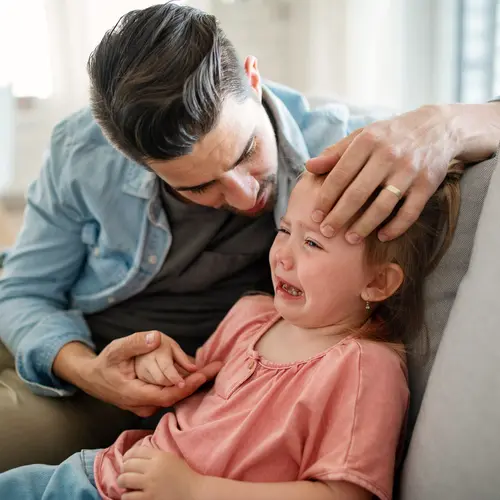Playtime isn’t just all fun and games. Kids learn important developmental and social skills through playing with others and by themselves. Associative play is one of the six stages of play — a widely-accepted system classified in 1932 by Mildred Parten, a researcher at the University of Minnesota’s Institute of Child Development.
Associative play is a fundamental stage of a child’s development when they begin learning simple social skills, like how to interact with their peers at playtime. It’s their first stage of social interaction. Learning about the stages of play can help you maximize your child’s learning potential with every age.
What Are the Six Stages of Play?
For the first years of your child’s life, they’re constantly learning about the world around them. From the first time they grasp a rattle to the feeling of grass under their feet, children constantly absorb sensory and social experiences.
But as parents know all too well, they don’t stay babies forever. Kids learn how to socialize through play.
There’s no hard-and-fast rule about the age a child must be as they go through each stage, but rest assured they will move through all six stages as they grow and develop through their milestones.
Unoccupied play. This stage happens in the first three months of a baby’s life. It might seem like they’re not doing much, but they’re starting to bond with their caretaker and discover themselves by moving parts of their bodies. Interaction with parents or caretakers like tummy time, singing, and even holding a rattle helps them develop early skills and awareness.
Solitary play. Children usually have solitary play from ages 0-2. They’re not interested in playing with anyone just yet and are happy to discover their toys alone. This phase is important because they learn motor skills, cause and effect, awareness of their surroundings, and — to the relief of exhausted parents everywhere — to entertain themselves.
Onlooker play. At about two years old, children start something called onlooker play. That means they simply watch other kids play on the playground or at daycare. They might ask questions or even converse with the other kids, but prefer to keep their distance.
Parallel play. Parallel play usually happens from ages two and up. Having recently discovered their motor skills, toddlers are now more confident and ready to use them. In this stage, they’ll often sit nearby other kids and play with their own toys. They also won’t necessarily talk or try to converse but are learning to work alongside each other.
Associative play. Kids typically start associative play around age three. In this stage, they start to do common activities or might share toys and materials with their peers. They might participate in the same activity, like running around in a circle or playing dress-up, but that activity usually isn’t organized and doesn’t have a goal. There’s little communication because each child is absorbed in what they’re doing.
Cooperative play. In cooperative play, kids are starting to show interest in each other and the activity. They might plan a game of duck-duck-goose or maybe play a game of sports. Cooperative play teaches kids how to handle conflict, regulate emotions, and learn how to compromise. Cooperative play is an essential part of a child’s emotional and social development.
Benefits of Associative Play
When your child is a toddler, they’re so interested in discovering new things that they can often ignore the world around them and become self-absorbed. When they enter the stage of associative play, they’ll typically start to branch out from their own experiences, interact with others, and make friends.
Associative play can help to improve language skills, problem-solving, and general social cooperation. Your child will also learn how to share or barter toys and think for themselves. They might communicate about a common activity or even allow or deny another child access to their play circle.
There are so many benefits to each stage of play, from newborn to preschool. Children develop critical social, functional, and emotional skills during these play sessions, but try to remember there is no strict timeline for when a child should advance to another type of play. Every person is different, and kids are no exception.


